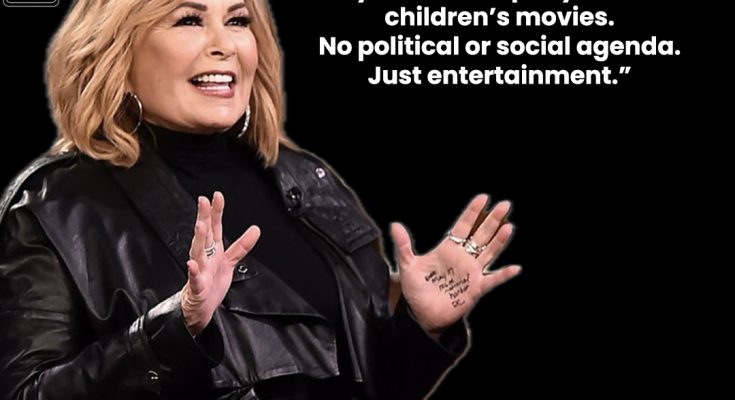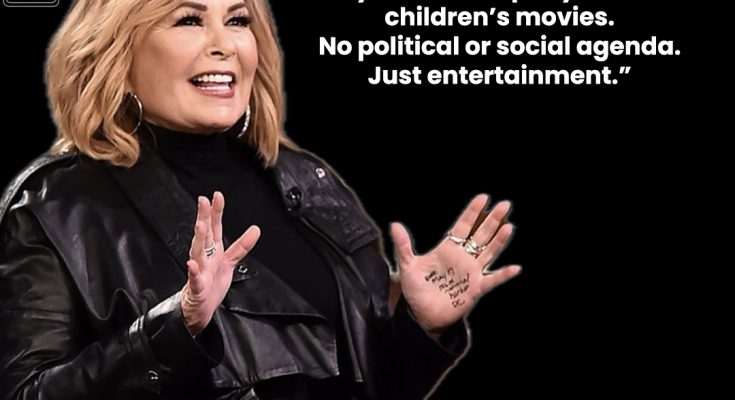“I’m Old Enough to Remember When Disney Was Just About Children’s Movies”: A Nostalgic Reflection on Entertainment and Politics
Main Article:
[Los Angeles, California] – In recent years, Disney, the entertainment giant known for bringing magic into the lives of millions of children and families around the world, has become the center of a growing debate. Critics and supporters alike are voicing their opinions on the company’s evolving role in society, with some expressing nostalgia for a time when Disney was perceived as a brand solely focused on “children’s movies” with “no political or social agenda—just entertainment.”
This sentiment has sparked conversations about the nature of entertainment, the role of media in shaping public discourse, and the changing landscape of cultural influence. For many, the idea of Disney as a pure entertainment company is a relic of the past, a time when films like The Lion King and Aladdin captivated audiences without stirring controversy.
A Nostalgic Look Back: Disney’s Golden Age
Disney’s rise to prominence in the 20th century is a story of creativity and innovation. Founded by Walt Disney in 1923, the company quickly became a household name with the release of groundbreaking films like Snow White and the Seven Dwarfs (1937), the first-ever feature-length animated film. Over the decades, Disney built a reputation for producing family-friendly content that appealed to audiences of all ages.
From the enchanting worlds of Cinderella and Sleeping Beauty to the swashbuckling adventures of Peter Pan and The Jungle Book, Disney movies were synonymous with timeless storytelling. These films offered escapism, moral lessons, and a sense of wonder that resonated with generations. The company’s focus was clear: entertain, inspire, and bring joy to children and families.
“I’m old enough to remember when Disney was a company that made children’s movies. No political or social agenda. Just entertainment,” a statement reflecting the sentiment of many who grew up during this era, captures a longing for the simplicity of Disney’s earlier works.
The Shift: Disney’s Expanding Role in Society
In recent years, however, Disney has expanded its content to include themes and stories that reflect contemporary social issues and political discourse. Films like Frozen (2013) and Zootopia (2016) explored themes of empowerment, diversity, and inclusion. The company’s live-action remakes and new releases, such as The Little Mermaid (2023) and Encanto (2021), have also been praised for their efforts to embrace multiculturalism and challenge traditional narratives.
This evolution has been celebrated by many who see Disney’s engagement with social issues as a positive development. Advocates argue that Disney’s influence on popular culture gives it a responsibility to promote values of equality, acceptance, and understanding.
“Disney has always been about more than just entertainment,” says Dr. Emily Harris, a professor of media studies. “Even in its earliest films, Disney was imparting moral lessons, though they were more subtle. The difference now is that these themes are more explicit and relevant to the issues facing society today. This shift reflects the changing expectations of audiences who want media that speaks to their lived experiences.”
Criticism and Controversy: A Divisive Debate
However, not everyone is on board with Disney’s transformation. Some long-time fans and cultural commentators argue that the company has strayed too far from its roots, prioritizing social and political messaging over pure entertainment. They express concern that the company’s movies have become vehicles for promoting specific ideologies, which they believe can alienate viewers who simply want to be entertained.
One of the most vocal critics of this trend is media commentator and film critic, John Masters. “What we’re seeing with Disney today is a company that’s more interested in being a cultural arbiter than in telling stories that appeal to everyone,” Masters said in a recent interview. “There was a time when Disney movies were a safe space for families—where you didn’t have to worry about encountering political agendas. That’s no longer the case, and it’s unfortunate.”
This perspective resonates with those who feel that entertainment should offer an escape from the complexities of the world, rather than serve as a platform for social commentary. They argue that the original magic of Disney lay in its ability to create fantastical worlds untouched by the issues of the day.
Disney’s Response: Balancing Tradition with Progress
In response to these criticisms, Disney has maintained that its content continues to evolve to reflect the values and concerns of a global audience. Company executives have emphasized that their goal is to create stories that resonate with today’s viewers while staying true to the core elements of Disney’s brand: imagination, adventure, and heart.
“We are committed to storytelling that reflects the diversity of our audience and the world we live in,” said Bob Chapek, Disney’s former CEO, in a statement. “Our films and shows aim to inspire and entertain, while also offering perspectives that encourage dialogue and understanding. We believe that these values are in line with the tradition of Disney as a leader in family entertainment.”
Chapek and other Disney leaders have argued that their approach is a natural progression in the company’s legacy of storytelling. They point to Disney’s long history of addressing social issues, even in its early works, albeit in more subtle ways. For instance, films like Pocahontas (1995) and The Hunchback of Notre Dame (1996) tackled themes of cultural conflict and social justice, though they were framed within the context of historical and fantastical narratives.
The Cultural Impact: Disney’s Role in Shaping Generations
Whether celebrated or criticized, there is no denying Disney’s profound impact on popular culture and its role in shaping the values of generations. The company’s films, theme parks, and merchandise have become deeply ingrained in the fabric of childhood and family life. As Disney continues to navigate its place in a rapidly changing world, the debate over its direction is likely to persist.
Cultural historian Dr. Linda Thompson offered her perspective on the ongoing debate. “Disney has always been a reflection of the times. What we see now is a company trying to balance its legacy with the demands of a new generation. This is not just about entertainment; it’s about the stories we tell and the values we pass on. Whether you agree with the direction Disney is taking or not, it’s clear that the company is trying to remain relevant in a world that is increasingly complex and diverse.”
What’s Next for Disney?
As Disney looks to the future, it faces the challenge of honoring its rich legacy while continuing to innovate and address the issues that matter to its global audience. The company’s upcoming slate of films and projects suggests that it will continue to explore themes of diversity, inclusion, and social justice, even as it produces content designed to entertain and inspire.
For those who long for the “old Disney,” the company’s continued evolution may be met with mixed emotions. However, it’s clear that Disney’s influence on culture and entertainment is as strong as ever, and its decisions will continue to shape the stories that define our times.
Conclusion: A Delicate Balance
The sentiment, “I’m old enough to remember when Disney was a company that made children’s movies. No political or social agenda. Just entertainment,” captures a nostalgic yearning for a simpler time in entertainment history. But as society evolves, so too does the content that reflects it. Disney’s challenge will be to strike a balance between staying true to its roots and embracing the complexities of the modern world.
As this debate continues, Disney remains at the forefront of cultural influence, and its decisions will likely continue to inspire both admiration and critique. The future of Disney, like the stories it tells, will be one of balancing tradition with progress, ensuring that its magic endures for generations to come.
Sidebar:
Disney’s Milestones in Storytelling: A Journey Through the Decades
- 1937: Snow White and the Seven Dwarfs – The first full-length animated feature film, setting the standard for Disney’s storytelling.
- 1950s: Cinderella and Peter Pan – Classic tales that defined Disney’s golden age of animation.
- 1989-1999: The Disney Renaissance – A period marked by critically acclaimed hits like The Little Mermaid, Beauty and the Beast, and The Lion King.
- 2000s: Lilo & Stitch and Finding Nemo – Films that began to subtly introduce themes of diversity and family dynamics.
- 2010s-Present: Frozen, Zootopia, and Encanto – Stories that explicitly tackle social issues, such as empowerment, diversity, and cultural identity.
Editorial:
The Role of Entertainment in Society: Should It Be Just for Fun?
As Disney and other entertainment companies increasingly address social and political issues in their content, it raises a critical question: Should entertainment be a space free of such themes, or is it a reflection of the society in which we live? This editorial explores the balance between escapism and social responsibility in modern media.
Related Articles:
- The Evolution of Disney: From Fairy Tales to Social Commentary
- How Disney’s Live-Action Remakes Are Shaping a New Era of Storytelling
- The Impact of Diversity and Inclusion in Children’s Media: A Global Perspective




